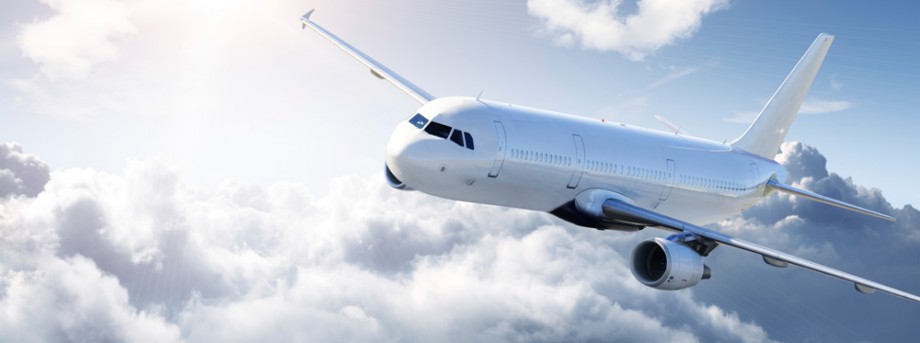The University of Nottingham
 Exchange online
Exchange online
Research Exchange
Brace for impact — is flying riskier than we thought?

In our 24 hour TV news culture, we are all too familiar with dramatic images of air disasters such as the 9/11 terror attacks, the Lockerbie bombing and American Airlines Flight 587, which crashed into a residential area in the New York district of Queen’s in November 2001
And while disasters like this remain a rare occurrence, a new TV series presented by a University of Nottingham academic is claiming that aviation near misses could actually be more common than many frequent fliers would care to contemplate.
Former aeronautical engineer Professor Brendan Walker takes an in-depth look into the risks of flying in Terror in the Skies, a four-part Channel 4 series on the aviation industry. The series investigates the causes of recent terrifying near-misses, with each episode tackling the individual issues of Nature, Human Error, Machines and External Factors.
Professor Walker, a senior research fellow in the University’s School of Computer Sciences, said: “Air travel is a microcosm of everyday life: we eat, we interact, we sit and we sleep in a tiny metal tube at altitude.
“We’re made to feel as comfortable as possible, and as oblivious as possible, to something which is quite an abstract concept — and an amazing engineering feat — travelling at 32,000ft at 85 per cent the speed of sound.”
The series follows Brendan as he visits world-leading aviation centres to examine the science behind flight safety and the ongoing efforts to prevent accidents and incidents. From sleeping air traffic controllers to lightning storms, the show is sure to provide some fascinating — if unsettling — tales of terror and survival in the skies.
Professor Walker is no stranger to the concept of the fear factor and has forged a career for himself as the world’s only ‘Thrill Engineer’. His more recent projects have revolved around his research with the Horizon Digital Economy Research Institute, based at Nottingham, where he leads the Vicarious research project, which investigates the application of biosensors to enhance entertainment platforms.
Past projects have involved developing roller coasters that alter the level of thrill they deliver depending on the emotions of its human riders and a live experiment into the paranormal with Professor Walker’s science performance company the Thrill Laboratory.
This latest venture marks a return to Brendan’s original training as an aeronautical engineer. His vast experience within this field will allow him to provide an authoritative insight, having trained as an aeronautical engineer at Imperial College and worked for British Aerospace Military Aircraft for five years before undertaking an MA in Industrial Design Engineering at the Royal College of Art.
The show Terror in the Skies is airing on Channel 4 at 8pm on a Sunday. The first episode is now available to watch again on Channel 4 OD.
Tags: crashes, flying, near miss, plane, School of Computer Sciences, Thrill Lab
Leave a Reply
Other News

Top prize for quantum physicist
A University of Nottingham physicist has won a prestigious medal from the Institute of Physics for […]

Zero carbon HOUSE designed and built by students comes home
Design and construct a low cost, zero carbon, family starter home, transport it to Spain, build […]